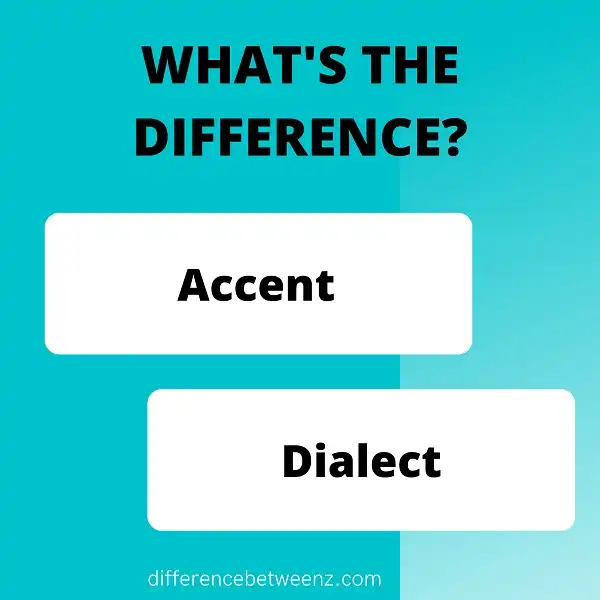If you’re unfamiliar with the distinction, accent and dialect can be easily confused. Though both refer to how a person talks, they are actually quite different. An accent is a way of pronouncing words that is specific to a certain region or country. A dialect, on the other hand, refers to differences in vocabulary, grammar, and sentence structure. Despite their subtle differences, it’s important to understand the distinction between these two terms, especially if you’re planning on traveling or working abroad.
What is Accent?
Accent refers to the way a speaker pronounces words, specifically which syllable is stressed. It can also refer to the overall dialect of a speaker, which includes factors such as vocabulary, grammar, and pronunciation. Accents can be regional, social, or ethnic in nature. They can also be imitations or foreign accents. Accents can affect both written and spoken language.
When writing, some people will use different spelling or punctuation to indicate which syllable should be stressed. In the speech, an accent can be used for dramatic effect, as in the case of a character with a fake foreign accent. Accent can also affect literacy rates, as some speakers may have difficulty understanding someone with a very different accent. Ultimately, the accent is a complex linguistic phenomenon with many different facets.
What is Dialect?
- Dialect can be defined as a regional or social variety of a language distinguished by pronunciation, grammar, or vocabulary. Dialects are often specific to a particular region or group of speakers within a larger speech community. In many cases, dialects can develop due to the influence of other languages, especially when speakers of different languages are in close contact with one another.
- Dialects can also arise due to social factors, such as class or ethnicity. For instance, the Cockney dialect of English is primarily spoken by working-class people in London. Dialects can vary widely in terms of phonology, grammar, and vocabulary. Some dialects are so different from the standard variety of a language that they are considered to be separate languages altogether.
- For example, Cuban Spanish and Standard Spanish are two different varieties of the Spanish language. Dialects can be an important part of a person’s identity and can often be used to create a sense of community among speakers of the same dialect. Dialects can also be a source of contention when different groups within a society perceive their own dialect to be superior to others. Dialects can change over time as new words and phrases enter the language and old ones fall out of use.
Difference between Accent and Dialect
Accent and dialect are often used interchangeably, but there is a distinct difference between the two. An accent is simply the way someone speaks their native language. It is typically determined by the region where a person grew up or currently lives. For example, someone from New York City may have a different accent than someone from rural Texas.
Dialect, on the other hand, refers to the specific vocabulary and grammar used by a group of people. For instance, African American English is a dialect that includes unique words and phrases not typically used by other English speakers. While an accent can be changed relatively easily, dialect is much more deeply ingrained and difficult to change.
Conclusion
Although accents and dialects may sound similar to some, they are actually quite different. It is important to understand the difference between the two so that you can properly communicate with your customers.


